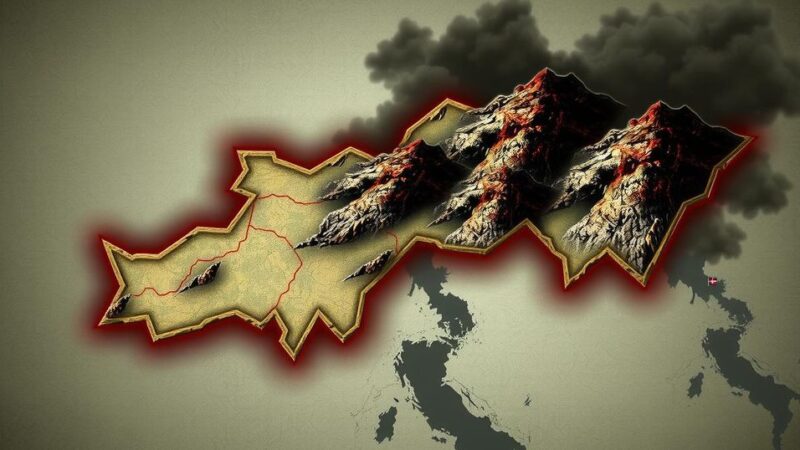Lt-Gen Mohamed Hamdan Daglo, leader of the RSF, has accused Egypt of conducting airstrikes against his forces amidst a war with the SAF, which has resulted in 18,000 deaths and over 11 million displaced. The Egyptian government firmly denies these allegations, asserting its role in seeking peace and stability in Sudan. Hemedti’s claims have reignited discussions about regional involvement in the conflict, drawing attention to the humanitarian crisis and questioning the international community’s capacity to intervene effectively.
In a significant escalation of tensions, Lt-Gen Mohamed Hamdan Daglo, popularly known as Hemedti, leader of the Rapid Support Forces (RSF), has accused Egypt of conducting airstrikes targeting his troops amidst a prolonged conflict with the Sudan Armed Forces (SAF). The ongoing war, which commenced in April 2023, has led to approximately 18,000 fatalities and displaced over 11 million people. Historically, the SAF has alleged that the RSF receives military backing from the United Arab Emirates; however, Hemedti’s accusations now implicate Egypt in the current hostilities. During a recorded address, Hemedti asserted that Egypt is supporting the Sudanese military through troop training and the provision of drone technology, thereby enabling significant military advancements by the SAF. “We have been silent for a long time and hoped they would awaken, but they are persistent in the battle,” Hemedti lamented. In response, the Egyptian Ministry of Foreign Affairs has categorically dismissed these allegations, labeling them as unfounded. The Ministry emphasized Egypt’s commitment to facilitating peace in Sudan and protecting civilians affected by the conflict, stating: “These allegations come amidst Egypt’s earnest efforts to stop the war, protect civilians, and promote international response to humanitarian relief plans for those affected by the ongoing war in brotherly Sudan.” Egypt’s historical support for the Sudanese military has been evident during periods of stability, including the presence of Egyptian troops in Sudan prior to the outbreak of war, which resulted in a brief detention by the RSF. Despite efforts for mediation and ceasefire attempts from Egypt, little progress has been achieved. Consequently, Egyptian President Abdel Fattah al-Sisi has embarked on a diplomatic mission to Eritrea to discuss enhancing bilateral relations and regional stability, particularly concerning the ongoing conflict in Sudan. This follows previous engagements with Eritrean President Isaias Afwerki aimed at solidifying regional security frameworks.
The ongoing conflict in Sudan represents a complex humanitarian crisis, exacerbated by warring factions—the RSF and the SAF—engaged in a fierce struggle since April 2023. The war has significantly affected the civilian population, leading to widespread dislocation, violence, and severe humanitarian ramifications. In the backdrop, Egypt has traditionally played a pivotal role in supporting the Sudanese military, which complicates its current stance amidst escalating accusations. With millions displaced and a critical need for humanitarian assistance, the international community faces pressing questions regarding its efficacy in intervening and mitigating the humanitarian disaster unfolding in Sudan. Hemedti’s recent speech reflects a broader distress within the RSF amid mounting criticisms and allegations of their involvement in atrocities.
In conclusion, Lt-Gen Mohamed Hamdan Daglo’s accusations against Egypt underscore the escalating complexities of the Sudanese conflict, which have drawn in regional players and heightened tensions. The Egyptian government’s refutation of these claims indicates its ongoing commitment to promoting peace and stability in Sudan. However, as violence persists and humanitarian conditions deteriorate, the international community is urged to enhance its efforts in providing assistance and resolving the crisis effectively. The consequences of this conflict continue to unravel, impacting not only Sudan but also the broader Horn of Africa region, leaving many to wonder about the future of stability in this war-torn area.
Original Source: www.theeastafrican.co.ke





